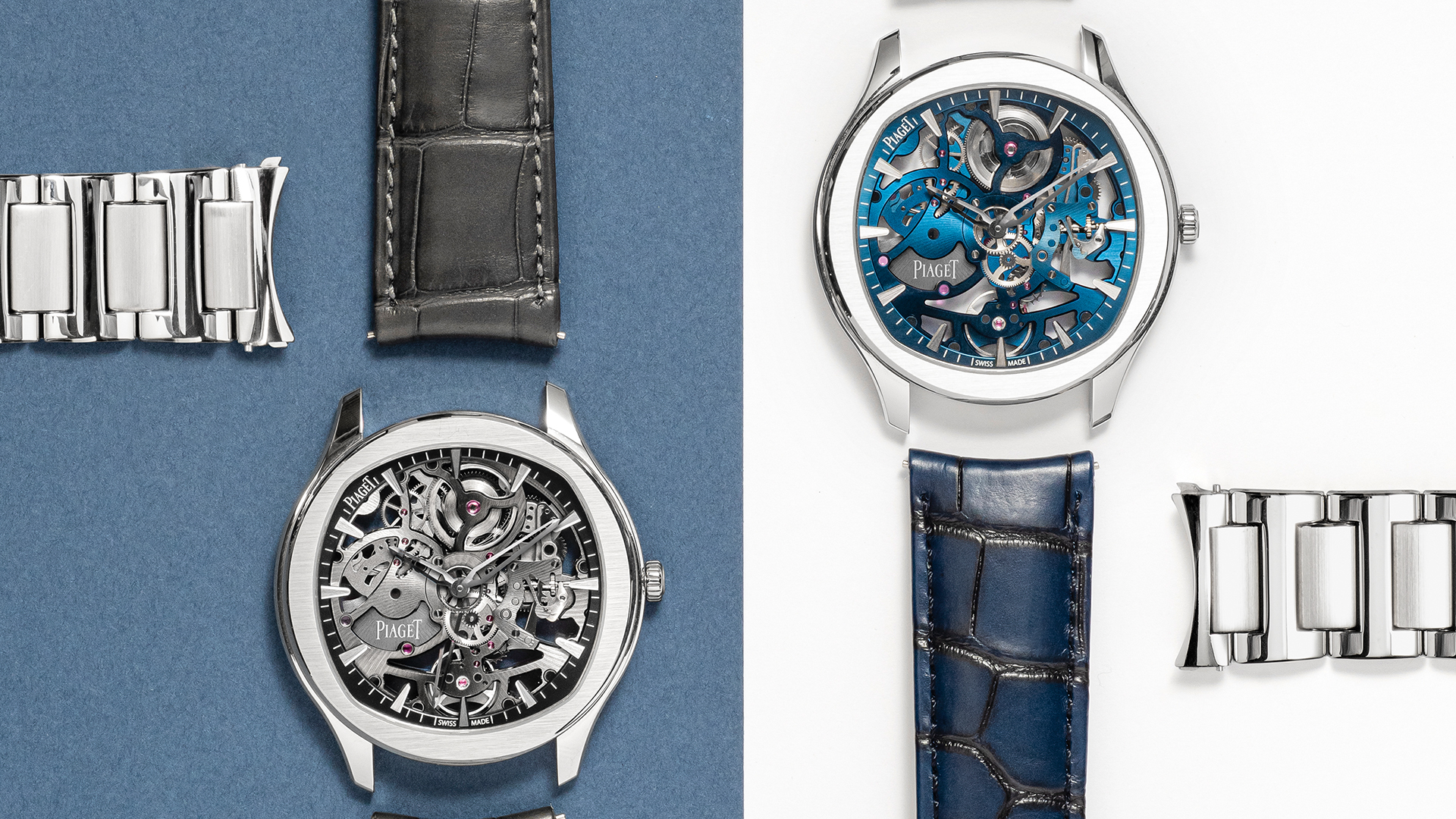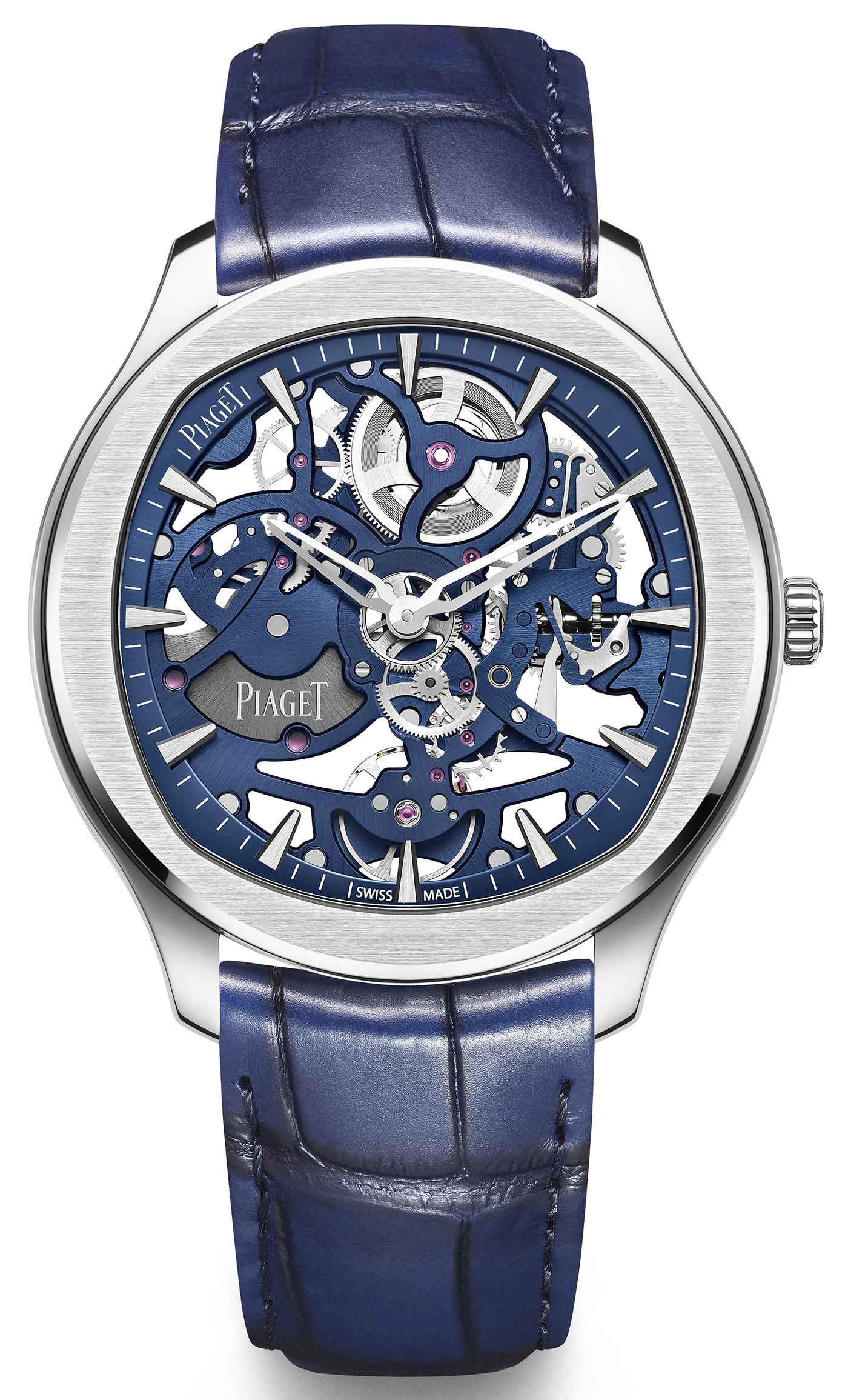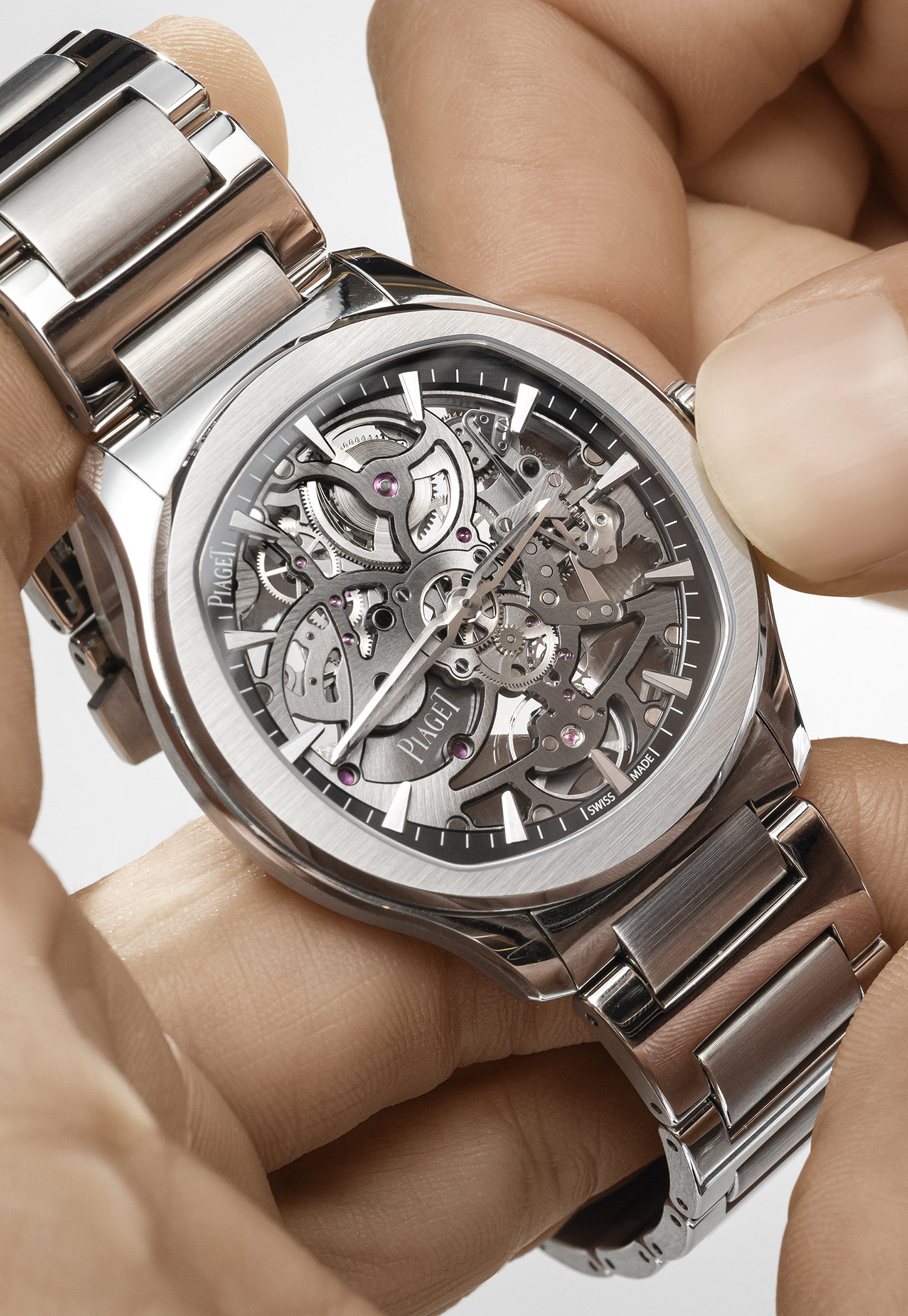
In the competitive, ultra-hyped space of Genta-influenced luxury steel sports watches, the Piaget Polo line has been a perennial dark horse. Without the pop culture visibility and endless waiting lists of some of its competitors, the Polo has built its own loyal following among enthusiasts over the years thanks to the series’ lithe styling and solid sporting credentials. Piaget’s latest addition to the Polo line, however, looks to stand at the crossroads between the Polo’s refined sporty look and the more embellished skeleton style of its older, more complicated sibling – the Emperador. To this end, the new Piaget Polo Skeleton trades some of the line’s sportier credentials for a more dramatic open worked look and a wafer thin case profile.

The familiar rounded case shape of the Polo line is carried over to the 42mm stainless steel case of the Piaget Polo Skeleton with a few subtle changes. This remains a softer, more relaxed take on a sporty concept shared by brands from Patek Philippe to Girard-Perregaux, with fewer hard edges and an airy execution. The finishing on the wide fixed bezel continues to be a standout in initial images, with sharp horizontal brushing punctuated by a brightly polished outer chamfer. In comparison to the standard Polo S, the Polo Skeleton is substantially thinner, measuring in at only 6.5mm in overall thickness. This slim profile is not without compromise, however, as the new case architecture reduces the water resistance from the Polo S’ 100 meter rating all the way to only 30 meters.

Of course, the real draw of the Piaget Polo Skeleton is the new skeleton dial design. Available in both graphite gray and a dynamic cobalt blue PVD, this full skeleton design features a unique radial finish that looks in images to be halfway between a sunburst pattern and twisted Côtes de Genève. Combined with the polished chamfers, this should make the design truly dynamic in changing light conditions, but both colors take this finish in very different directions. The blue finish is bright and charismatic, demanding attention and creating sharp contrast with the other elements of the movement. The slate gray variant, on the other hand, is more reserved and uniform, presenting the movement within as more of a unified whole. Piaget’s dial layout for the Polo Skeleton is noteworthy as well, incorporating the mainspring barrel, balance wheel, escapement, gear train, and the signed microrotor all into a cohesive and open view that maintains excellent visual weight distribution across the space of the dial. Despite the radical skeleton redesign, many of the Polo’s signature design elements shine through including the triangular applied indices and alpha hands.

Piaget uses the Polo Skeleton as a testbed for its new 1200S1 microrotor automatic skeleton movement, the newest evolution to the 1200S movement series. The entire movement measures in at only 2.4mm thick, but performance remains solid with a 44 hour power reserve at a 21,600 bph beat rate.

The Piaget Polo Skeleton is available with a pair of strap options. First up is the Polo’s mirror polished H-link bracelet in stainless steel, with wide center links featuring smooth horizontal brushing for contrast. Both dial variants are also equipped with supple alligator leather straps, with a textured finish matching the dial color. Both options play up different aspects of the Polo Skeleton’s character, with the bright and imposing bracelet reinforcing the visual link to other stainless steel luxury sports models while the switch to alligator leather emphasizes the Polo case’s lugs and its overall softer execution.

By visually bridging the gap between two of the brand’s most historic series, the Piaget Polo Skeleton line expands the horizons for the future of the Polo series in an aesthetically interesting way but sacrifices some durability in the process. The Piaget Polo Skeleton is available now through authorized dealers at an MSRP of $28,500. For more details, visit the brand’s website.

